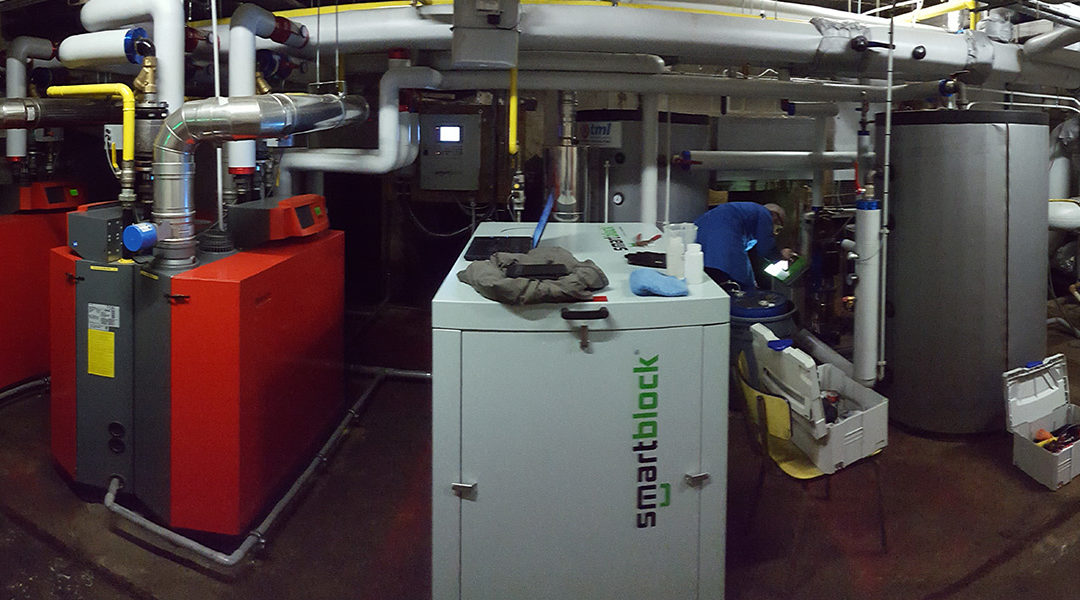For a number of years, the greater Brussels region has been implementing policies aimed at reducing the environmental impact of the capital’s housing. While these policies have a significant impact on new buildings, which must be constructed according to strict norms, older buildings are subject to few obligations and are therefore lagging behind in terms of reducing their energy consumption. This is all the more true for co-owned apartment blocks, which have to contend with internal obstacles, such as property management firms that are out of their depth and unable to obtain consent from a qualified majority (75% for major investments) of individual owners. The latter can be reticent about applying solutions, especially when these will result in higher costs to ensure compliance, as is often the case when renovating energy systems, for example replacing boilers.
For this reason, the company go4green was created. It provides funding to replace existing heating systems (if necessary) and install a cogeneration system. Cogeneration makes it possible to produce both electricity and heat from the same installed system supplied by a single fuel, gas in this case. What’s more, it does so more efficiently than can be achieved by producing the two energies separately (i.e. electricity from a power plant and heat from condensing boilers). Result: gas consumption is cut by 18-25%, which means CO2 emissions are reduced too. Go4Green’s contribution doesn’t stop there; the company is also introducing a remote monitoring system for the installations, meaning that a building can limit consumption to the exact quantity of resources it needs, depending on the time of year and its specific characteristics.
It doesn’t take long before the results start to show.
Take the Nations residence, for example; it comprises 118 apartments and had the system installed in late 2013. The tenants saved 17% on their energy bills in the first year, and after 3 years the figure was 23% lower than before. The building’s CO2 emissions have been halved. “The advantage of this system is that the money saved on the apartment block’s energy bills can then be put towards other shared projects aimed at reducing the building’s energy consumption. For example, insulating the roof or the outer walls which will, in turn, further reduce the energy bills of the people living there. This will also prompt individual owners to pursue the efforts in their own areas, i.e. at single apartment scale, such as replacing the window frames or the thermostatic control,” explains Patrick Leemans, founder of go4green.
Looking for more info about go4green? Click here!





